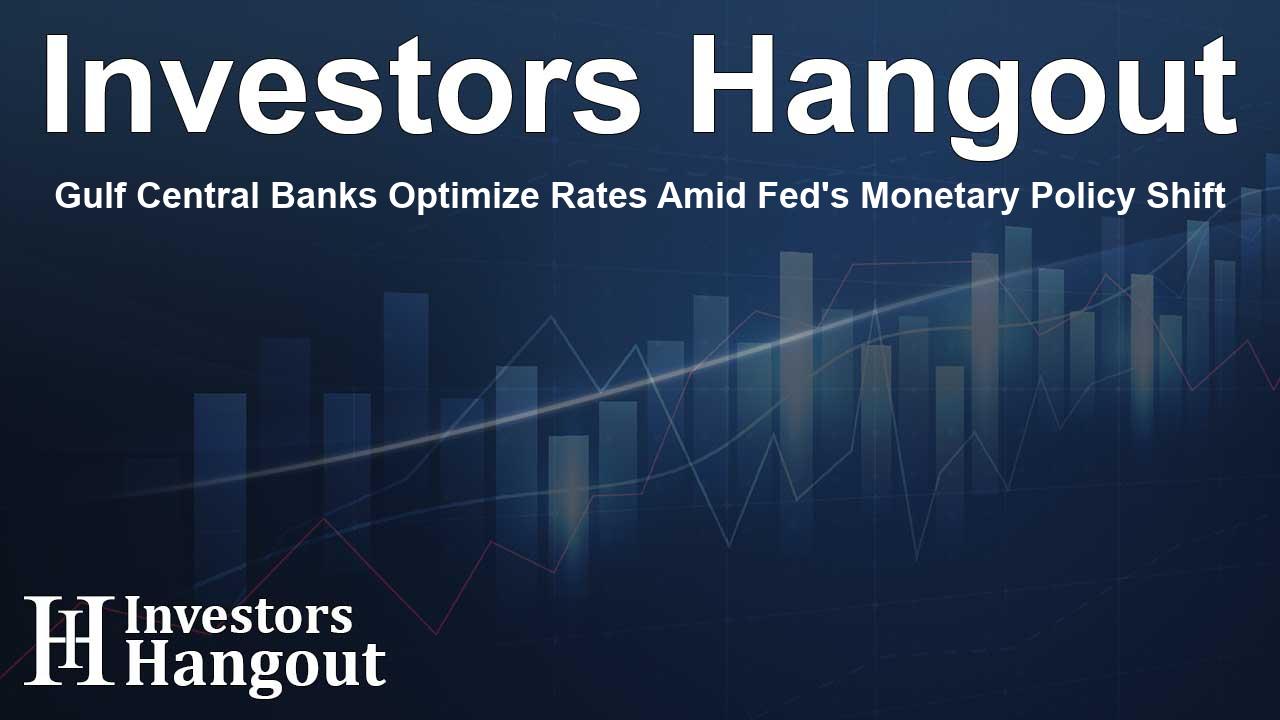Gulf Central Banks Optimize Rates Amid Fed's Monetary Policy Shift

Gulf Central Banks Respond to U.S. Federal Reserve Rate Cuts
Recent developments in the Gulf region's monetary policy have shown a strong alignment with the Federal Reserve's recent decisions. Following the Fed's reduction of interest rates by 50 basis points, most Gulf central banks have moved to cut their key rates, thereby fostering a more conducive economic environment.
Rate Changes Across the Region
The primary aim of these cuts is to enhance economic growth within the Gulf states. The central bank of Saudi Arabia, the largest economy in the region, has reduced its repurchase agreement (Repo) rate and reverse repo rate, each by 50 bps, bringing them to 5.5% and 5.0%, respectively. Simultaneously, the United Arab Emirates’ central bank also adjusted its overnight deposit facility rate by half a percentage point to 4.90%.
Effects on the Regional Economies
The Gulf region, primarily known for its oil and gas exports, tends to mimic the Federal Reserve's rate adjustments. This action is particularly relevant as most local currencies are pegged to the U.S. dollar, with the notable exception of the Kuwaiti dinar, which is pegged to a basket of currencies, including the dollar. This tight linkage often requires these central banks to follow suit with similar rate changes.
Implications of Lower Borrowing Costs
Lowering the interest rates will make borrowing more affordable for individuals and businesses alike, fostering investment in key sectors. Damian Hitchen, CEO of Saxo Bank for the Middle East and North Africa, stated that the Fed's rate cut reflects a favorable environment that aligns with the long-term investment and diversification goals in the Gulf states.
Investing in Non-Oil Sectors
The reduced borrowing costs will boost investments across non-oil sectors, such as tourism, renewable energy, and technology. These sectors have gained significant attention as the region aims to diversify its economic base and decrease its dependence on oil revenues.
Additional Rate Cuts by Other Central Banks
In addition to Saudi Arabia and the UAE, Qatar has also adjusted its key rates downward, with a 55 basis point reduction across three vital rates. Bahrain has followed suit by lowering its overnight deposit rate by 50 basis points. Kuwait has slightly adjusted its discount rate as well, lowering it from 4.25% to 4%.
Future Economic Outlook
A recent poll indicated that inflation rates in the Gulf region are projected to hover between 1.0% and 3.0% in the upcoming year. Despite external pressures, regional economies appear to be well-positioned to manage inflation while focusing on growth and development.
Frequently Asked Questions
What prompted the Gulf central banks to reduce interest rates?
The reductions stemmed from the Federal Reserve's decision to cut rates by 50 basis points, prompting Gulf nations to follow suit to promote economic growth.
How do these rate cuts affect local economies?
Lower interest rates encourage borrowing and spending, is expected to bolster investments in various sectors beyond oil.
Which countries have cut their rates?
Saudi Arabia, the UAE, Qatar, Bahrain, and Kuwait have all adjusted their interest rates in response to the Fed's actions.
What sectors could benefit from these lower rates?
Key sectors like tourism, renewable energy, and technology are likely to see increased investment due to more favorable borrowing conditions.
What are the inflation expectations for the region?
Forecasts suggest that inflation in the Gulf region will range between 1.0% and 3.0% for the next year, indicating stability amid the economic adjustments.
About Investors Hangout
Investors Hangout is a leading online stock forum for financial discussion and learning, offering a wide range of free tools and resources. It draws in traders of all levels, who exchange market knowledge, investigate trading tactics, and keep an eye on industry developments in real time. Featuring financial articles, stock message boards, quotes, charts, company profiles, and live news updates. Through cooperative learning and a wealth of informational resources, it helps users from novices creating their first portfolios to experts honing their techniques. Join Investors Hangout today: https://investorshangout.com/
Disclaimer: The content of this article is solely for general informational purposes only; it does not represent legal, financial, or investment advice. Investors Hangout does not offer financial advice; the author is not a licensed financial advisor. Consult a qualified advisor before making any financial or investment decisions based on this article. The author's interpretation of publicly available data shapes the opinions presented here; as a result, they should not be taken as advice to purchase, sell, or hold any securities mentioned or any other investments. The author does not guarantee the accuracy, completeness, or timeliness of any material, providing it "as is." Information and market conditions may change; past performance is not indicative of future outcomes. If any of the material offered here is inaccurate, please contact us for corrections.